Increasing the Quality of Suicide-Specific Treatment in Vermont
The Vermont Program for Quality in Health Care, Inc. (VPQHC) is collaborating with the Four Pines Fund to provide an exciting opportunity for independent mental health providers to increase their comfort and competence working with clients experiencing suicidal thoughts.
Our goal is two-fold, to develop a directory of clinicians who are trained in suicide-specific treatment protocols in order to support referral pathways to appropriate treatment, and to identify clinicians who are interested in further training. VPQHC and the Four Pines Fund are making evidence-based trainings available to Vermont clinicians at an affordable price. Our long-term goals are to develop ongoing communities of practice to provide opportunities for case consultation and support, and ultimately to expand the quality of mental health care in Vermont.
The Vermont Department of Health reports that Vermont’s suicide rate was 18.3 per 100,000 in 2017, making suicide the 8th leading cause of death in the state (Vermont Department of Health, 2019). Suicide is the second leading cause of death for people aged 15 to 44 (American Foundation for Suicide Prevention, 2019). The rates of self-harm and death by suicide in Vermont are significantly higher than the United States (Centers for Disease Control, 2019). When a person dies by suicide traumatic effects reverberate through their families, schools, and communities. The need for quality treatment is growing, and through this work we hope to support the development of strong pathways to appropriate care, and to increase the number of mental health clinicians in Vermont who are prepared to provide evidence-based treatment to clients experiencing suicidal ideation.
Collaborative Assessment & Management of Suicidality (CAMS) Training Opportunities for Mental Health Providers
CAMS is an evidence-based model designed to support clinicians as they assess, intervene, and treat patients experiencing suicidal ideation. CAMS is a therapeutic framework which has been updated and studied for 30 years. CAMS Treatment reduces suicidal ideation, mental pain, agitation, and hopelessness in as few as 6-8 sessions. CAMS trained clinicians report increased confidence in treating clients with suicidal thoughts. *Visit www.cams-care.com to learn more about the model.
Provider Benefits:
Increased confidence and lower anxiety about working with suicidal clients.
Greater work satisfaction associated with growth in professional knowledge, skills, and effectiveness.
Decreased liability risk – Use of an evidence-based, systematic assessment and treatment framework, along with good documentation (provided by the CAMS training) reduces risk of poor outcomes and liability.


